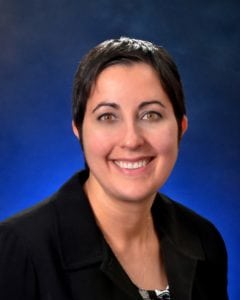With the New Year about to begin, it is a time for reflection: What did we do that left us feeling proud? What are we prepared to leave behind? What parts of us need forgiveness and healing? What new dreams, hopes and commitments are we prepared to make, so that this coming year will be filled with blessings?
It is a time to take inventory. Especially as we approach Yom Kippur, we contemplate the meaning of this season of repentance, atonement, prayer and tzedakah (charitable giving to ensure justice), culminating in a day of fasting.
The rabbis taught that one is commanded to fast (along with other rituals, such as wearing a white kittel, which is traditionally worn when one dies and is buried), to be reminded of the fragility of the body and to approach the sensation of feeling faint and near death.
From such an experience, worshippers are encouraged to move outside of the ego’s defense mechanisms and recognize the importance of those values one is tempted to cast aside during the rest of the year. As the Talmud teaches, live every day as if it were the last day – a technique that is often used in psychotherapy as well, to help with difficult decisions.
For example, think about what you did yesterday. If you knew that yesterday was the last day of your life, what would you have wanted to do differently? How would you have spent your time? Would you have spent more of it with your loved ones? Would you have told them you love them? Would you have forgiven someone or asked for their forgiveness?
If we lived every day as if it were our last, there would be little preparation to do as we approach the High Holy Days.
For most of us, though, we have allowed our humanity and egos to get the best of us. It can be difficult to think of approaching those whom we have hurt – intentionally or unintentionally – and asking for their forgiveness. The truth is, we may not want to know about the unintentional hurts, let alone make them right.
But this is what we are asked to do, to take a spiritual inventory and do the difficult, messy and sacred work of making amends.
Working in a hospital, I am frequently called to the bedside of one who is dying. I bear witness to the regrets that family members are afraid to voice and the unresolved feelings that are too painful to bring up, yet are too painful to let die. My role is to encourage them to have those difficult conversations; they will become the raw material of later healing.
In Judaism, there is a prayer that one is supposed to recite upon one’s deathbed: Vidui, which means, confession. The rabbis teach that we are not supposed to wait until our final moments to recite it. Recognizing that any of us could die at any moment, a modified version is included in our daily prayers, to be recited three times a day. A more expanded reflection is associated with the recital of the Shema before sleep, and a more comprehensive prayer is recited on Yom Kippur.
With all of these required prayers to be recited, how many of us can truly say the words authentically? There are many variants of this prayer for forgiveness. In anticipation of the High Holy Days, I share the following translation by Rabbi Zalman Schachter-Shalomi, along with my own prayers for a new year filled with healing and forgiveness for us all:
You, My Eternal Friend,
Witness that I forgive anyone
who hurt or upset me or offended me –
damaging my body, my property,
my reputation or people that I love;
whether by accident or willfully,
carelessly or purposely,
with words, deeds, thought, or attitudes;
in this lifetime or another incarnation –
I forgive every person,
May no one be punished because of me.
Help me, Eternal Friend,
to keep from offending You and others.
Help me to be thoughtful
and not commit outrage,
by doing what is evil in Your eyes.
Whatever sins I have committed,
blot out please, in Your abundant
kindness
and spare me suffering or harmful
illnesses.
Hear the words of my mouth and
may the meditations of my heart
find acceptance before You, Eternal
Friend
Who protects and frees me. Amen.
(Rabbi Nadia Siritsky is vice president of mission at KentuckyOne Health.)



